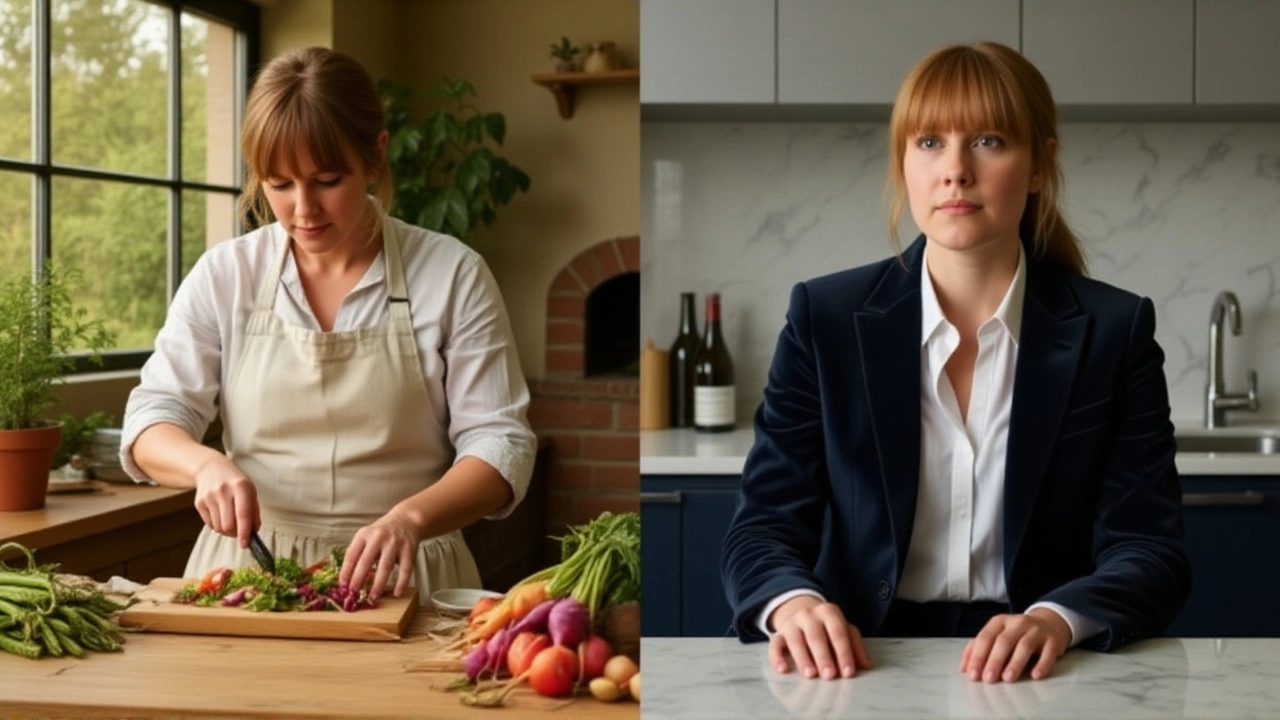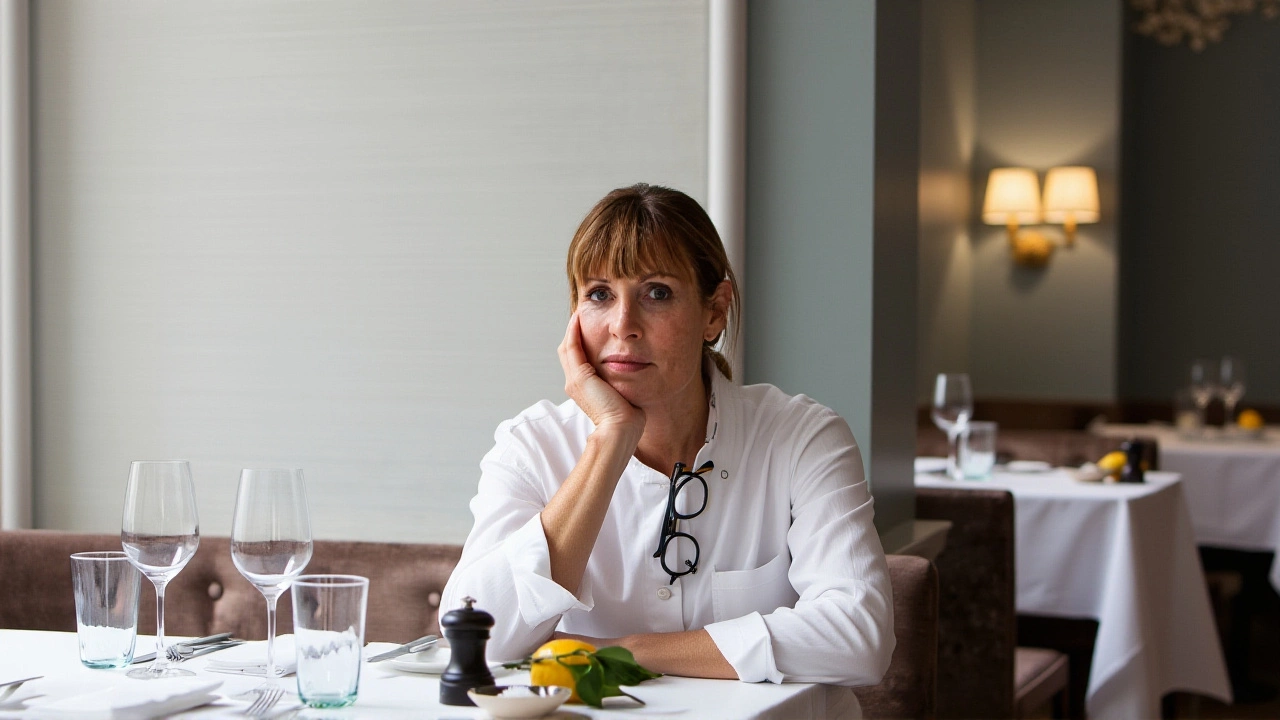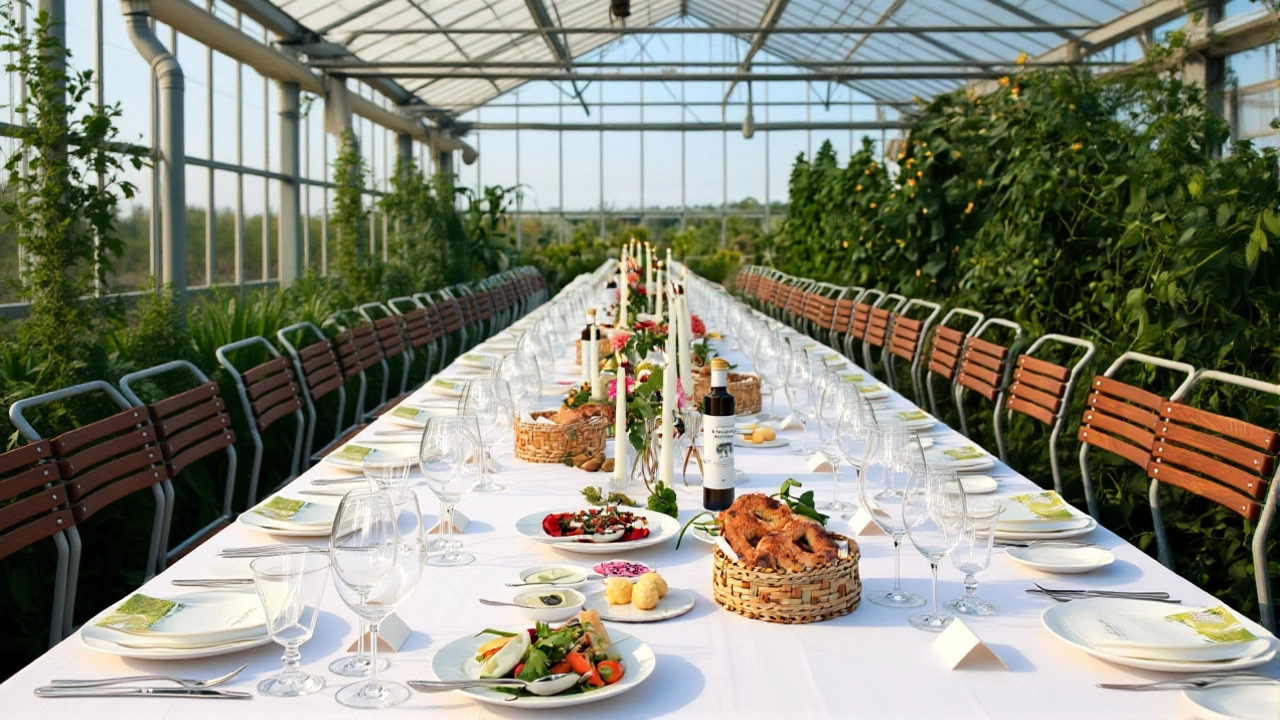
The culinary world lost one of its most quiet revolutionaries when Skye Gyngell, the Australian-born chef who redefined British dining with seasonal ingredients and unpretentious elegance, died on 22 November 2025 in London at age 62. Her death followed a hard-fought battle with Merkel cell carcinoma, a rare and aggressive skin cancer diagnosed in early 2024. She leaves behind a legacy that reshaped how chefs think about food—not as spectacle, but as honest expression.
From Sydney to the Heart of British Cuisine
Born on 6 September 1963 in Sydney, Gyngell didn’t set out to become a star. She trained in France, absorbing the discipline of classical technique, but her heart was always drawn to the rhythm of the seasons. When she arrived in Britain in the late 1990s, fine dining was still dominated by heavy sauces and rigid formality. Gyngell had other ideas. She believed in letting ingredients speak for themselves—ripe tomatoes in August, wild mushrooms after rain, herbs picked just before service. Her breakthrough came in 2004, when she joined the fledgling Petersham Nurseries Café in Richmond upon Thames. The space? A converted greenhouse tucked inside a flower nursery. No formal tablecloths. No sommelier. Just wooden benches, mismatched china, and food that tasted like it had just stepped out of the garden. “It was cooking out of a garage,” she once told The Telegraph. And yet, in 2011, the Michelin Guide awarded it a star.The Star That Felt Like a Curse
Gyngell didn’t celebrate the star. She called it a “curse.” The pressure to maintain perfection clashed with her philosophy. The kitchen was tiny. The staff, stretched thin. The customers, expecting white tablecloths and tasting menus. She left in 2012, saying she couldn’t reconcile the restaurant’s soul with the expectations a star demanded. “If I ever have another restaurant, I pray we don’t get a star,” she said at the time. She later regretted the words—not because she changed her mind about simplicity, but because she saw how deeply her work had inspired others. The truth was, she had already changed the game. Petersham Nurseries Café became a blueprint: proof that Michelin-level excellence didn’t need grandeur. Just honesty.Spring and the Quiet Revolution
In 2013, she opened Spring in London’s Mayfair. It was her answer to the question: What if fine dining felt like home? The menu changed daily. The wine list was curated by small producers. The desserts? Often just fruit, dusted with salt. Critics raved. But Gyngell rarely gave interviews. She didn’t do TV. She didn’t chase fame. Instead, she wrote. As food editor for Vogue, she brought elegance to the page. Her four cookbooks—A Year at Petersham, Let’s Do Dinner, My Kitchen, and Seasons—are less instruction manuals and more love letters to the rhythm of the year. They’re filled with notes on weather, foraging, and the quiet joy of waiting for the first asparagus.
A Diagnosis That Changed Everything
In 2024, she was diagnosed with Merkel cell carcinoma, a cancer that affects fewer than 3,000 people annually in the U.S. and even fewer in the UK. It’s aggressive, fast-spreading, and often misdiagnosed. Surgery followed, removing a tumor near her ear. The treatment left her with a loss of taste and smell—a devastating blow for a chef. She described it as being “cut off from the world.” Yet, she kept cooking. For her two children. For friends. For herself. She’d stand in her kitchen, tasting with her eyes closed, remembering flavors the way a musician remembers a melody. Friends say she never complained. She just adapted.Legacy in the Kitchen and Beyond
When news broke of her death, tributes poured in from across the culinary world. Jamie Oliver called her “the quiet force behind Britain’s food renaissance.” Nigella Lawson remembered her kindness: “She didn’t just cook with ingredients—she listened to them. And in doing so, she taught us all how to listen.” Her influence stretches beyond restaurants. The rise of farm-to-table dining in the UK? She helped make it respectable. The popularity of seasonal menus in even casual eateries? That’s her fingerprint. She proved you didn’t need a sommelier to serve something extraordinary—just respect for what the earth provides.
What Comes Next
No public memorial has been announced. Industry insiders expect a quiet gathering for family and close colleagues—perhaps at Petersham, where the roses still bloom and the kitchen still smells of thyme and woodsmoke. Her children, now adults, are said to be planning a private tribute. The culinary world will keep moving. New chefs will open new restaurants. But few will carry her quiet courage. Her philosophy—less is more, and only if it’s true—feels more urgent now than ever.Frequently Asked Questions
What made Skye Gyngell’s cooking different from other Michelin-starred chefs?
Unlike many Michelin-starred chefs who emphasized technique and luxury, Gyngell focused on simplicity and seasonality. At Petersham Nurseries Café, she cooked in a converted greenhouse with limited space, using only locally sourced ingredients with minimal intervention. Her food tasted like the garden, not the kitchen—challenging the notion that fine dining required grandeur.
Why did she call the Michelin star a “curse”?
Gyngell felt the star imposed expectations incompatible with Petersham Nurseries Café’s rustic, organic ethos. The kitchen was small, staff were few, and the setting was informal. She believed customers expected white-tablecloth service, which the space couldn’t provide. The pressure to maintain perfection clashed with her belief that food should be joyful, not rigid.
How did Merkel cell carcinoma affect her ability to cook?
After surgery in 2024, Gyngell lost her sense of taste and smell—devastating for a chef who relied on those senses to guide her cooking. She described the experience as being “cut off from the world.” Despite this, she continued to cook for loved ones, using memory and intuition to recreate flavors, demonstrating extraordinary resilience.
What was her impact on British cuisine?
Gyngell pioneered the modern British movement that prioritized seasonal, local ingredients over heavy sauces and imported luxuries. Her work at Petersham Nurseries Café proved Michelin-quality food could thrive outside traditional fine dining. She inspired a generation of chefs to value authenticity over spectacle, shaping everything from pub menus to high-end restaurants across the UK.
Did she have any notable collaborations or media roles?
Yes. Beyond her restaurants, she was food editor for Vogue magazine and contributed regularly to The Independent. She authored four cookbooks, including A Year at Petersham, which became a cult favorite. She also partnered with Cloudy Bay wines for a pop-up restaurant in 2011, blending her seasonal philosophy with New Zealand’s crisp whites.
Where will her legacy live on?
Her legacy lives in the kitchens of chefs who prioritize seasonality, in the menus of restaurants that change daily, and in the growing public appreciation for humble, honest cooking. Petersham Nurseries Café still operates, and Spring’s influence endures. Most importantly, her books continue to inspire home cooks to see food not as performance, but as poetry.